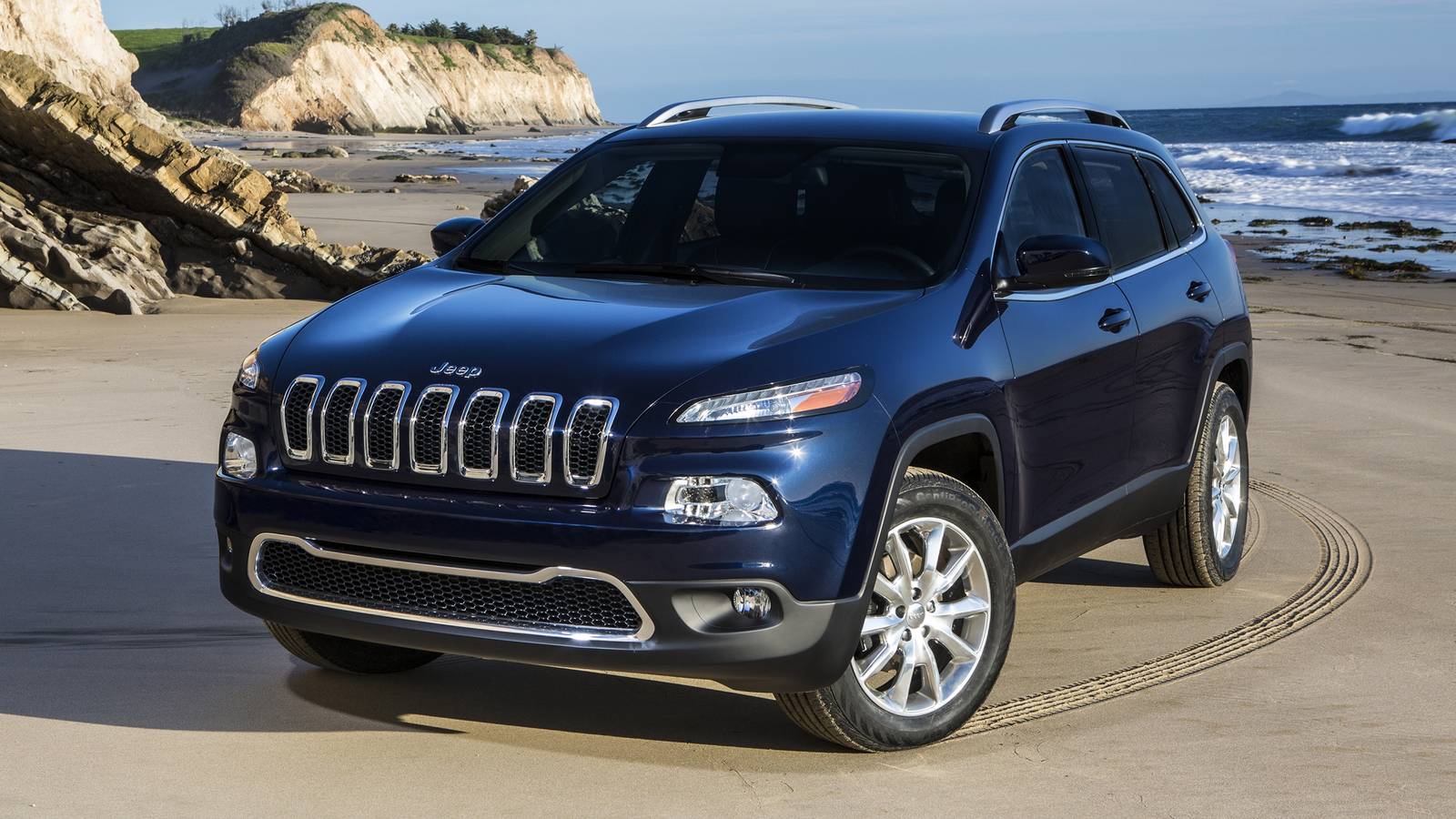If you own a Jeep Cherokee, you know how important a smooth transmission is for your daily drive. But what happens when your transmission starts acting up?
Transmission problems can turn your reliable vehicle into a source of stress and costly repairs. You might notice slipping gears, strange noises, or delayed shifting—and these issues can quickly affect your safety and wallet. You’ll discover the common Jeep Cherokee transmission problems, what causes them, and how you can spot the warning signs early.
Keep reading to protect your ride and avoid unexpected breakdowns.
Common Transmission Issues
Jeep Cherokee owners often face transmission problems that affect driving comfort. These issues can reduce vehicle performance and cause costly repairs. Understanding common transmission problems helps in early detection and maintenance.
Many drivers notice changes in how their Jeep shifts gears or hears unusual noises. These signs point to transmission troubles. Identifying specific issues allows owners to seek proper service quickly.
Slipping Gears
Slipping gears occur when the transmission shifts unexpectedly. The Jeep may jump out of gear or fail to stay in gear. This problem can cause sudden loss of power and unsafe driving conditions.
Slipping often results from worn clutch plates or low transmission fluid. Ignoring this issue leads to further damage and expensive repairs. Prompt attention is essential to avoid breakdowns.
Delayed Shifting
Delayed shifting means the Jeep hesitates before changing gears. Drivers may feel a pause or jerking motion during acceleration. This delay reduces smoothness and control on the road.
Causes include faulty sensors or clogged transmission filters. Regular fluid changes and inspections can prevent delayed shifting. Early fixes save money and improve vehicle safety.
Transmission Fluid Leaks
Transmission fluid leaks lower fluid levels, harming transmission function. Leaks often appear as red or brown puddles under the Jeep. Low fluid can cause slipping, overheating, and shifting problems.
Leaks may come from damaged seals, gaskets, or cracked lines. Checking fluid levels and fixing leaks quickly protects the transmission. Maintaining proper fluid keeps the Jeep running smoothly.
Overheating Problems
Transmission overheating happens when fluid cannot cool the system properly. Overheating causes the transmission to fail and parts to wear out faster. This issue often leads to complete transmission breakdown.
Common causes include low fluid, heavy towing, or clogged coolers. Keeping the cooling system clean and fluid fresh prevents overheating. Avoiding high heat protects the Jeep’s transmission health.

Credit: www.topspeed.com
Typical Causes
Transmission issues in Jeep Cherokee vehicles often arise from common mechanical and electronic problems. Understanding these typical causes helps owners identify and fix issues early. This knowledge can save time and money on repairs.
Worn Clutch Plates
Clutch plates inside the transmission wear out over time. This wear causes slipping and rough shifting. Low power transfer and strange noises are common signs. Replacing worn clutch plates restores smooth driving performance.
Low Transmission Fluid
Transmission fluid lubricates moving parts and cools the system. Low fluid levels cause overheating and gear slipping. Leaks or poor maintenance often lead to low fluid. Checking and refilling fluid prevents damage and maintains transmission health.
Faulty Torque Converter
The torque converter transfers engine power to the transmission. A faulty converter causes shuddering and delayed acceleration. It may also cause overheating and poor fuel economy. Repair or replacement fixes these issues and improves drive quality.
Electronic Control Failures
Modern Jeep Cherokees rely on electronic controls for smooth shifting. Sensor failures or wiring problems disrupt transmission operations. Warning lights on the dashboard often indicate these faults. Diagnosing and fixing electronic issues ensures proper transmission function.
Repair Options
Jeep Cherokee transmission problems need quick fixes to keep your vehicle running well. Repair options vary by issue type and severity. Some fixes are simple, while others require more work.
Choosing the right repair saves money and extends transmission life. Understanding common repair methods helps you make better decisions.
Fluid Replacement And Flush
Transmission fluid wears out and gets dirty over time. Replacing or flushing the fluid restores smooth shifting. This fix often solves slipping and rough gear changes. Regular fluid changes prevent bigger problems later.
Seal And Gasket Repairs
Leaking seals or gaskets cause fluid loss and transmission damage. Repairing or replacing these parts stops leaks. This repair protects the transmission from overheating and failure. Early leak fixes keep your Jeep safe on the road.
Transmission Rebuild
A rebuild fixes severe internal damage inside the transmission. Mechanics replace worn gears, clutches, and other parts. This option costs more but restores your transmission’s function. Rebuilds extend the life of older Jeep Cherokees.
Software Updates And Resets
Modern Jeep Cherokees use software to control transmissions. Updating or resetting the software can solve shifting issues. This fix is quick and sometimes free at dealerships. It helps clear error codes and improves performance.

Credit: www.reddit.com
Diy Maintenance Tips
Maintaining your Jeep Cherokee’s transmission can save money and extend its life. Simple checks and good habits help avoid costly repairs. These DIY tips keep your transmission running smoothly.
Regular Fluid Checks
Transmission fluid keeps parts moving and cool. Check the fluid level often using the dipstick. The fluid should be clean and red or pink. Dark or burnt-smelling fluid means it needs changing. Use the correct fluid type for your Jeep model. Low or dirty fluid can cause shifting problems and damage.
Driving Habits To Protect Transmission
Avoid sudden stops and fast accelerations. Gentle driving reduces stress on transmission parts. Let your vehicle warm up before driving in cold weather. Use lower gears on steep hills to avoid overheating. Do not tow more than your Jeep’s limit. These habits help keep the transmission healthy.
Monitoring Warning Signs
Watch for slipping gears or delayed shifting. Strange noises or vibrations can signal trouble. Check for transmission fluid leaks under your vehicle. A burning smell may mean overheating. If warning lights appear on the dashboard, get it checked. Early detection prevents serious damage.
Scheduled Service Intervals
Follow the Jeep Cherokee’s recommended service schedule. Regular maintenance includes fluid changes and inspections. Professional service can spot small problems early. Keep records of all maintenance for future reference. Staying on schedule protects your transmission’s performance.
When To See A Mechanic
Knowing when to see a mechanic for Jeep Cherokee transmission problems can save you from bigger issues. The transmission is key for your vehicle’s movement. Signs of trouble should not be ignored. Early action helps avoid costly repairs and unsafe driving conditions.
Persistent Shifting Problems
Shifting gears should be smooth and quick. If your Jeep struggles to change gears or slips out of gear, this is a clear sign of a problem. Delays or jerks during shifting need immediate attention. Persistent issues might damage the transmission further.
Warning Lights And Codes
The check engine light or transmission warning light signals trouble. Modern vehicles store error codes that explain the problem. Scanning these codes helps find the exact issue. Ignoring warning lights can lead to sudden breakdowns.
Unusual Noises
Grinding, whining, or clunking sounds from the transmission area are abnormal. These noises often show worn or damaged parts. Noises during gear changes or while driving need prompt inspection. Quiet operation means the transmission is healthy.
Sudden Performance Drops
A sudden loss of power or slow acceleration can point to transmission faults. Hesitation or slipping during driving reduces safety. If your Jeep feels sluggish or unresponsive, see a mechanic quickly. Early diagnosis keeps your vehicle reliable and safe.

Credit: www.reddit.com
Frequently Asked Questions
What Are Common Jeep Cherokee Transmission Problems?
Common issues include slipping gears, delayed shifting, and transmission fluid leaks.
How To Tell If Jeep Cherokee Transmission Is Failing?
Look for rough shifts, strange noises, or warning lights on the dashboard.
Can Transmission Problems Affect Jeep Cherokee Fuel Efficiency?
Yes, faulty transmission can lower fuel efficiency by causing poor gear shifts.
How Much Does Jeep Cherokee Transmission Repair Usually Cost?
Repairs range from $1,000 to $3,500 depending on the problem’s severity.
Is It Safe To Drive With Jeep Cherokee Transmission Issues?
Driving can worsen damage; it’s best to check and fix problems quickly.
Conclusion
Jeep Cherokee transmission problems can cause serious driving issues. Regular checks help catch problems early. Fixing small issues prevents costly repairs later. Always listen for strange noises or shifting delays. Proper care extends your vehicle’s transmission life. Stay alert to signs of trouble on the road.
Taking action quickly keeps your Jeep running smooth. Don’t ignore warning signs; your safety matters most. Keep your Cherokee reliable with simple maintenance steps. Transmission health plays a big role in overall vehicle performance.
